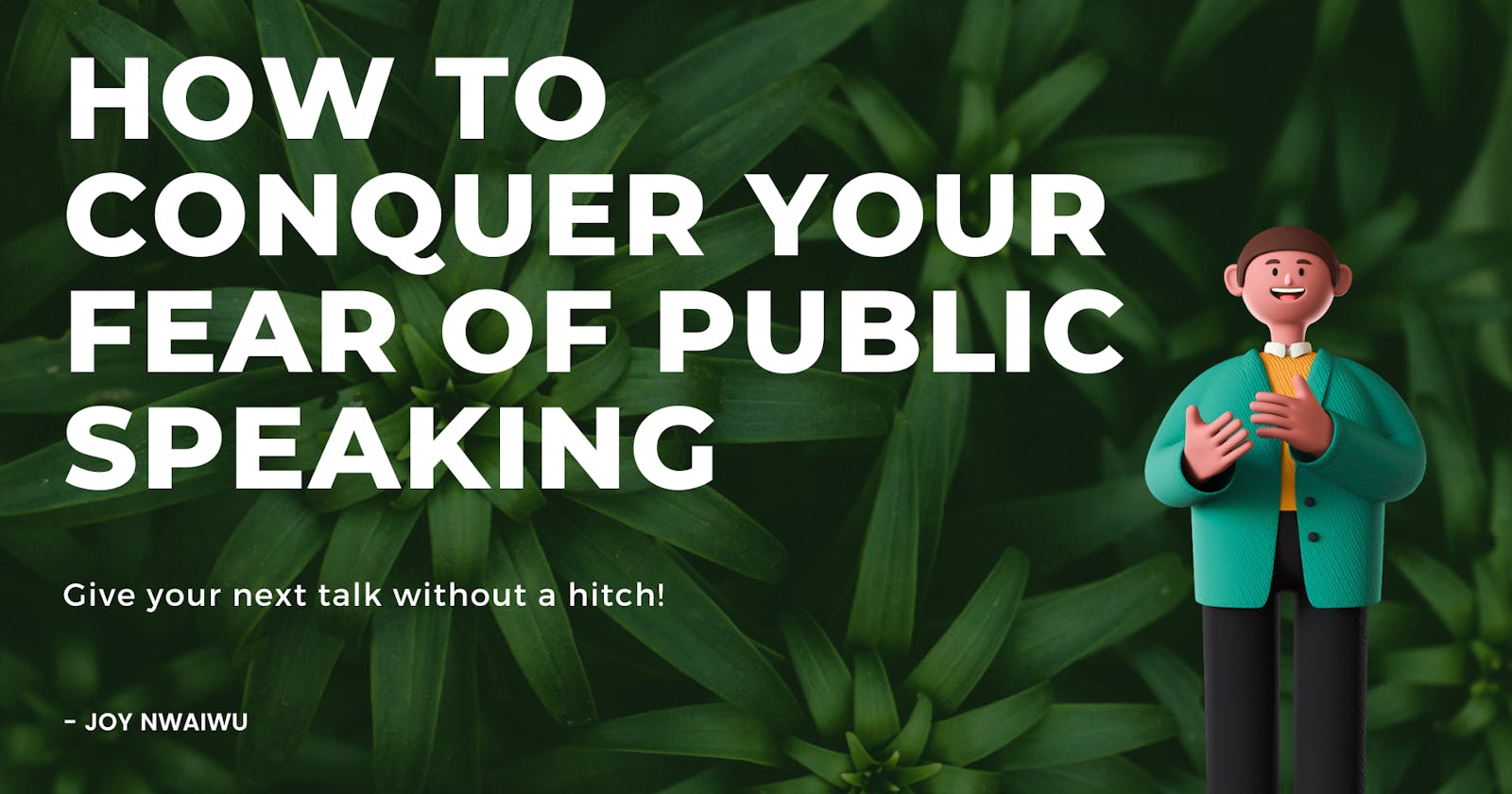Public speaking is hard. There, I said it!
I've never been a fan of public speaking, and I know I'm not alone when it comes to being nervous about it. There are just so many things that can go wrong in front of a crowd! You could forget your words, make a bad joke, or even have the audience lose interest in your speech.
If you're an introvert like me and while at a conference or meeting, someone asks if you'd like to say a few words, your heart skips a beat. You don't want to sound fake or unprepared, but you also don't want to come off as shy or standoffish.
If this sounds like you, then keep reading! I'll share some tips on what has worked for me and how to make sure your next speech goes off without a hitch!
So, what exactly is public speaking?
Public speaking is an art form that requires a combination of passion, talent, and practice in order to be successful at it. This involves being able to speak to an audience without losing your train of thought or getting too nervous about what you're saying. It's also about knowing what your audience wants to hear from you in order to tailor your message to their needs and interests.
Public speaking can be categorized into three parts:
Preparing for the speech (the time before the actual speech)
Speaking (the time at which you are talking)
Conclusion (raising questions or making suggestions after your speech ends)
The Preparation
This is the time before the actual speech while you're getting yourself ready mentally and physically to deliver your message. It's not just about making sure your voice is clear but also about having confidence in what you have to say and knowing how to connect with your audience. While you're preparing for your speech, it's important to have a plan.
- Think about what you want to say and how you'll structure it.
- If there are any parts of the speech that seem difficult, try to work on those parts first so that it doesn't become a challenge when it comes up later in the speech.
- Practice writing down your ideas and reading them out loud to yourself.
- Consider asking friends or family members to read through your presentation and offer feedback if possible.
Speaking
The time at which you are talking is the most important part of your speech. It's easy to get lost when you're speaking. It's easy to forget about the most critical part of your speech: your audience. Your goal now should be to connect with the audience, ensuring they understand what you have to say. Here are some steps for doing that:
- Use your body language and voice to connect with the audience.
- If you are presenting using a visual aid (slides), ensure that it's in line with your message to support your ideas and not distract or take away from them.
- Speak clearly and loud enough for everyone within the room to hear
- Practice speaking from a place of authenticity. You don't want to come across as fake or scripted. This can be tough sometimes! But if you practice regularly, with time, you will be able to speak from a genuine place, even when it may feel like an awkward experience for you at first.
- Keep it simple and clear!
Questions/Suggestions
Practice your ending story more than any other segment of your talk because it is the portion of your speech that will leave that all-important last impression. You want to leave your audience feeling fulfilled to have attended the session and gained something from your words.
You don’t want to just sit down after giving your speech. You should try engaging with your audience, making sure they understood your presentation. One way to do this is to raise questions or make suggestions after your talk ends. This shows that you're open to dialogue and willing to hear what others have to say. It also allows you to gauge how well you were able to captivate their interest.
A few generic questions or prompts that can come in handy after giving your talk are:
- Now that I’ve broken down [XYZ topic] into bits, what do you think about starting a career/making an impact with [XYZ]?
- Do you have any questions?
- Is there anything you disagree with?
- What would you like to know more about?
- Is there anything you'd like to add?
Finally, remember that public speaking is all about connecting with others, so make eye contact with as many people as possible throughout the entire process!
Believe me when I say you are going to rock your next public speaking engagement. I know it. I've been there, done that, and lived to tell the tale.
I’m being intentional and making it happen for myself and now it's time for YOU to do the same!
Yes, public speaking can be a nightmare but just like life, each time you fail, there's usually an opportunity for something better right around the corner.
Global Recycling Day (18th March 2022)

Held at the Bloombreed Schools in Port Harcourt, Nigeria, and speaking as a representative of iRecycle Initiative. The Global Recycling Day focuses on informing world leaders (staff, students, and parents/guardians at Bloombreed) that recycling is a critical global issue and encouraging them to think resource, not waste.
International Day of Girls in ICT (28th April 2022)

Speaking at the prestigious Holy Rosary College, Port Harcourt, organized by Technovation on 28th May 2022. Discussions centered around lowering barriers to access and improving safety online for girls and young women in a digital Africa.
P.S: Smile and nod a lot and learn how to do both of those things in public, you’ll do just fine!
Are there some additional tips or tricks that have helped you ace your speaking engagements? I'd love to hear from you in the comments!
If you've found this content informative and would like to support my work, please do so here:
Thanks for reading so far! Until next time, take care!


